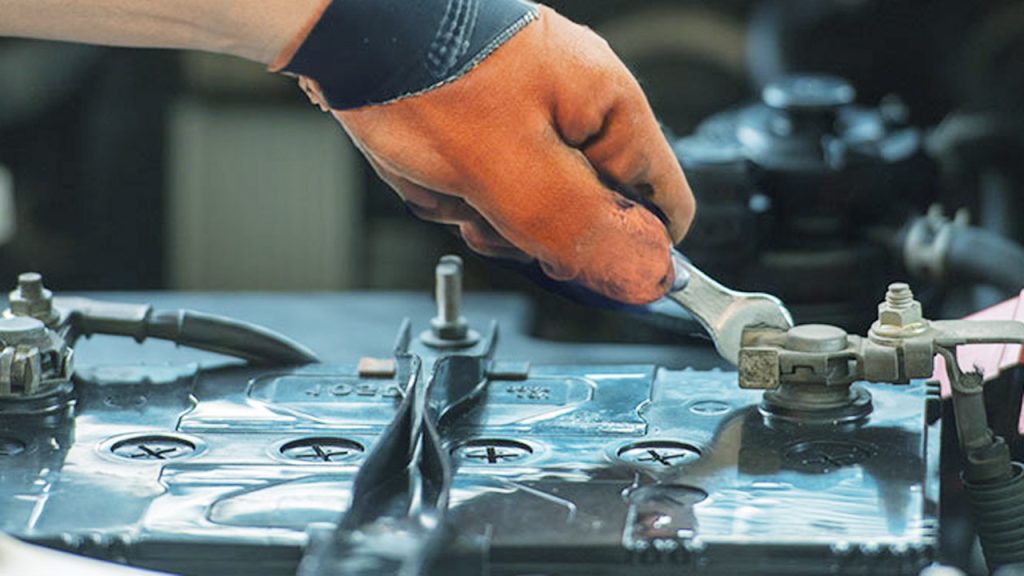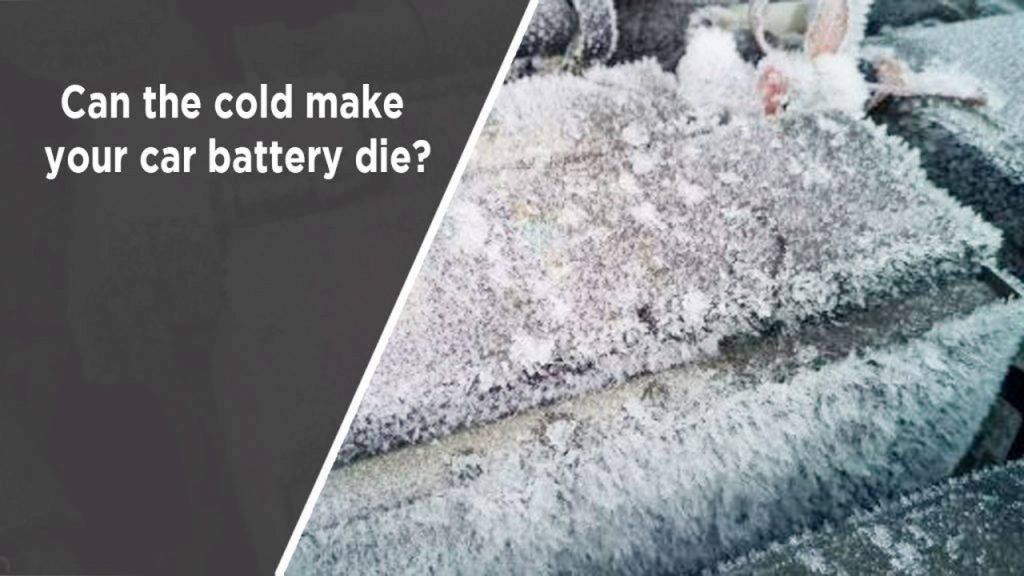Have you ever wondered how long you can leave a car battery disconnected without causing issues? Maybe you’re storing your car for the winter or disconnecting the battery for repairs or safety reasons. This question is more important than it seems because your car’s battery plays a crucial role in keeping various systems functional, even when the vehicle is off.

Image by interstatebatteries
In this article, I will share everything I’ve learned about disconnecting car batteries—from how long it’s safe to leave them disconnected to the potential effects on your car. Whether you’re a casual driver or a DIY mechanic, you’ll find this guide practical and easy to follow.
Why Would You Disconnect a Car Battery?
There are several common reasons why you might need to disconnect your car battery:
- Safety During Repairs: Disconnecting the battery eliminates the risk of short circuits when working on your car’s electrical components.
- Preventing Battery Drain: If you’re not driving the car for an extended period, disconnecting the battery can preserve its charge.
- Resetting Electronics: Sometimes, disconnecting the battery can help reset the car’s electronic systems, like the check engine light.
- Avoiding Electrical Surges: If you’re working on the vehicle’s wiring or installing new electronics, disconnecting the battery protects sensitive components from damage.
How Long Can You Leave a Car Battery Disconnected?
The length of time you can leave a car battery disconnected depends on a few factors, but here’s the general rule:
- For Short-Term Repairs: Leaving the battery disconnected for a few hours or even a couple of days is perfectly fine.
- For Long-Term Storage: If you’re storing your car for weeks or months, disconnecting the battery is usually safe, but there are some precautions you should take to avoid complications.
Let’s dive deeper into these scenarios.
Short-Term Disconnection: What Happens?
If you disconnect your car battery for a short period, such as during a repair, you’re unlikely to face significant issues. However, some things to consider include:
- Clock and Radio Settings: Disconnecting the battery will reset your clock and any saved radio presets.
- ECU Memory Loss: Your car’s Engine Control Unit (ECU) stores data about your driving habits to optimize performance. A brief disconnection may erase this data, but the system will relearn it as you drive.
Long-Term Disconnection: What to Know
When leaving a car battery disconnected for weeks or months, a few more factors come into play:
- Battery Health: Over time, batteries naturally lose charge, even when disconnected. If left disconnected too long, the battery could lose its ability to hold a charge altogether.
- System Resets: Modern cars rely heavily on electronics. Long disconnections can reset not only the clock and radio but also advanced systems like GPS, keyless entry, or security settings.
- Corrosion Prevention: A disconnected battery is less likely to suffer from corrosion, but the terminals should still be kept clean and dry.
Precautions for Long-Term Disconnection:
- Use a Battery Tender: A battery tender or maintainer can help keep the battery charged while it’s disconnected.
- Store the Battery Properly: If you’re removing the battery entirely, store it in a cool, dry place to extend its life.
- Inspect Before Reconnecting: Always check for corrosion or damage before reinstalling the battery.
What Happens to Your Car When the Battery is Disconnected?
Modern vehicles are more sensitive to battery disconnections than older models. Here are some potential impacts:
- Loss of Stored Data: Features like seat memory, navigation routes, and fuel efficiency data may be erased.
- Error Codes or Lights: Some cars may display error messages or warning lights upon reconnection.
- System Recalibration: Certain systems, such as idle speed or transmission shifting, may need to recalibrate, which usually happens automatically after driving a few miles.
How to Safely Disconnect a Car Battery
Disconnecting a car battery is simple, but doing it safely is key. Follow these steps:
- Turn Off the Car: Ensure the engine and all electronics are off.
- Locate the Battery: Most batteries are under the hood, but some may be in the trunk or under a seat.
- Disconnect the Negative Terminal First: Use a wrench to loosen the negative (black) terminal and remove it.
- Disconnect the Positive Terminal: Repeat the process for the positive (red) terminal.
- Secure the Terminals: Keep the disconnected cables away from the battery to avoid accidental contact.
How to Reconnect a Car Battery
Reconnecting the battery is essentially the reverse of the disconnection process:
- Inspect the Terminals: Ensure they’re clean and corrosion-free.
- Reconnect the Positive Terminal First: Attach the positive (red) cable and tighten it.
- Reconnect the Negative Terminal: Attach the negative (black) cable and secure it.
- Start the Car: Turn on the engine and check that all systems are functioning normally.
Key Differences Between Short-Term and Long-Term Battery Disconnection
| Aspect | Short-Term Disconnection | Long-Term Disconnection |
|---|---|---|
| Duration | A few hours to a couple of days | Weeks to months |
| Battery Health Impact | Minimal | Potential charge loss |
| System Resets | Clock, radio | Advanced systems like GPS |
| Precautions Needed | None | Battery tender, proper storage |
Tips for Maintaining a Disconnected Battery
- Check the Voltage: Use a multimeter to ensure the battery retains a healthy charge.
- Clean the Terminals: Regular cleaning prevents corrosion, which can interfere with performance.
- Recharge If Necessary: If the battery is low, charge it before reconnecting to avoid straining the alternator.
Common Myths About Battery Disconnection
- Myth: Disconnecting the battery will harm the car.
- Truth: While it may reset some systems, it won’t cause permanent damage if done correctly.
- Myth: You can’t leave a battery disconnected for more than a few days.
- Truth: A well-maintained battery can last weeks or even months when disconnected.
Conclusion
So, how long can you leave a car battery disconnected? The answer depends on your situation. For short-term repairs or resets, a few hours or days won’t cause any harm. If you’re storing your car for an extended period, take precautions like using a battery tender and storing the battery in a safe environment.
The key is to ensure your battery stays in good condition and your car’s systems are prepared for reconnection. By following these tips, you can avoid unnecessary headaches and keep your vehicle running smoothly.
FAQs
Can a disconnected car battery go bad?
Yes, if left disconnected for too long without proper care, the battery can lose its charge or develop issues.
Will disconnecting the battery reset my car’s settings?
Yes, disconnecting the battery will reset certain systems like the clock, radio presets, and possibly advanced electronics.
How do I prevent my battery from dying while it’s disconnected?
Use a battery tender or regularly check and recharge the battery to maintain its health.
Is it safe to leave a battery disconnected for months?
It’s safe as long as you store the battery properly and ensure it retains a charge.
Do I need to reprogram my car after reconnecting the battery?
Some systems may require recalibration or reprogramming, but most will reset automatically after driving.


